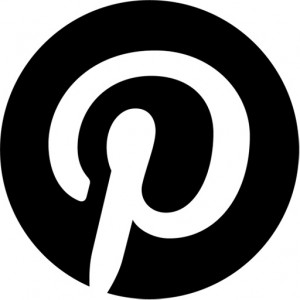I recently caved in and decided to create an account on Pinterest. After hearing it mentioned on Facebook and Twitter, along with reviews from friends, I wanted to see what it was all about.
So what is Pinterest? According to its website, “Pinterest is a virtual pinboard. Pinterest allows you to organize and share all the beautiful things you find on the web. You can browse pinboards created by other people to discover new things and get inspiration from people who share your interests.” In layman’s terms: Pinterest is a simple and visual way to bookmark your favorite things on the Internet.
The website is intuitive and it is easy to start adding to boards. A “Pin It” button can be installed on your toolbar to pin directly from any website you visit. Here is an example of what the site looks like:

One of the key features of Pinterest is that it is interactive. Similar to Twitter, you can follow the boards of other users and there is a stream updated in real-time of what people you follow are pinning. There is also the option to share pins on Facebook or Twitter. Therefore, you can share what you like best on the Internet with friends and influence what they are looking at online.
I was instantly hooked on the website after I received my invite (which can be requested through the site). Not only was I repinning pictures I liked posted by friends, but I also clicked on the links that sent me directly to the product’s web page.
After browsing the website, I realized that Pinterest is a marketer’s dream for trying to reach women. Many users have at least one board dedicated to “Brands I Like” and there is even a section for gifts in different price ranges. I started to think about how Pinterest could be used in public relations:
- Tastemakers (the most influential users on Pinterest) and other popular pinners could be pitched about products to pin on their boards. Pins by Tastemakers are often repinned by hundreds of users.
- Companies could create Pinterest boards for their brands. Although this is somewhat controversial, it is already used by some fashion brands.
- Pinterest could choose to allow “promoted pins” similar to promoted tweets on Twitter for companies to share a product or their brand with more users.
While Pinterest does not have the widespread appeal of platforms such as Facebook and Twitter, it does have a strong marketing potential, particularly with women. I am interested to see how it is used in our industry as the platform continues to grow.
Do you have an account on Pinterest? If so, how are you using it?

 As design director at Cookerly, Tim serves as the creative lead in the development of branding campaigns, print collateral and digital media for clients across a broad range of industries, including consumer, professional services, healthcare and technology.
As design director at Cookerly, Tim serves as the creative lead in the development of branding campaigns, print collateral and digital media for clients across a broad range of industries, including consumer, professional services, healthcare and technology. As senior vice president at Cookerly, Mike Rieman specializes in building and maintaining relationships with the media and has an excellent track record of landing significant placements in print and broadcast media including USA Today, Wall Street Journal, Bloomberg and Money Magazine.
As senior vice president at Cookerly, Mike Rieman specializes in building and maintaining relationships with the media and has an excellent track record of landing significant placements in print and broadcast media including USA Today, Wall Street Journal, Bloomberg and Money Magazine.

 As vice president of Cookerly, Sheryl Sellaway uses her extensive corporate communications background to lead consumer PR efforts, deliver strategy for marketing programs and share expertise about community initiatives.
As vice president of Cookerly, Sheryl Sellaway uses her extensive corporate communications background to lead consumer PR efforts, deliver strategy for marketing programs and share expertise about community initiatives.
 As a senior vice president at Cookerly, Matt helps organizations protect and advance their reputations and bottom lines through strategic communications programs. Using creativity, planning and flawless execution, he works with a team to deliver compelling public relations campaigns that produce results and support clients’ business objectives.
As a senior vice president at Cookerly, Matt helps organizations protect and advance their reputations and bottom lines through strategic communications programs. Using creativity, planning and flawless execution, he works with a team to deliver compelling public relations campaigns that produce results and support clients’ business objectives.
1 Comment